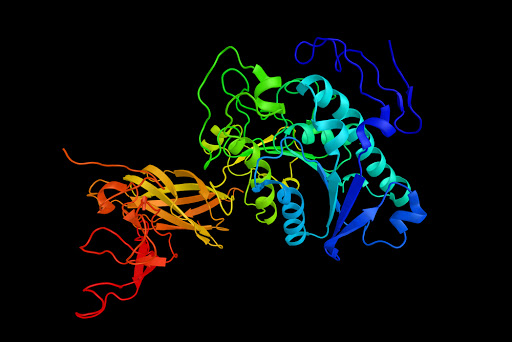
The Right Enzymes for Ketogenic Diets
What Exactly is the Keto Diet?
The idea behind the keto diet is to change which energy source your body uses. Most of us eat a diet high in carbohydrates from grains, sugars and starches. Carbs are easily turned into glucose which is then used as your body’s fuel source. Insulin is the hormone which triggers this reaction.
Glucose is very easy to make and store. Anything you don’t use is turned into fat and stored in fat cells.
Fat and protein are different. They are not as easy to turn into energy, so they are not the body’s preferred fuel source. However, it’s not that hard to get your body to start burning fat instead.
The trick is reducing carbs from your diet. When you stop eating carbs, your body does not produce as much insulin which triggers a new hormone reaction. This secondary process is what starts the fat burn.
A keto diet is not suitable for everyone. Talk to your general health physician to see if the keto diet is good for you.
Benefits of Keto
Fat and protein take longer to digest and burn, which leads to less of an energy spike after a meal. With glucose, you get that fast spike then crash. Since fat burns longer, you have more energy throughout the day.
The keto diet is also generally low in foods with high inflammatory factors and so it might help with inflammation.
However, to fully take advantage of the benefits of a keto diet, the importance of supplementing the diet with digestive enzymes should not be overlooked.
What Are Enzymes?
Enzymes are proteins that act as catalysts, making bodily functions work more efficiently. Their primary functions are to help break down some molecules, or to convert others into forms easier for your body to use.
When it comes to your digestive tract, their main job is to break down your food into usable nutrients your body can use. All food is made up of many different molecules, much like a structure made up of building blocks. Enzymes take those structures apart so instead of having one big unusable block, you have many readily available individual blocks the body can use to create energy, maintain, build, and repair tissues.
 Different components of food can be broken down by specific enzymes. Fat is broken down by lipases. Proteins are broken down by proteases. Carbohydrates are broken down by carbohydrases.When you eat, enzymes in your mouth start breaking down your food. Your body analyzes what it is detecting as you chew and sends signals to the rest of your digestive tract indicating what enzymes to make for this batch of food. As the food travels along the GI tract, all of the different enzymes break down your food until you excrete what you haven’t been able to use.
Different components of food can be broken down by specific enzymes. Fat is broken down by lipases. Proteins are broken down by proteases. Carbohydrates are broken down by carbohydrases.When you eat, enzymes in your mouth start breaking down your food. Your body analyzes what it is detecting as you chew and sends signals to the rest of your digestive tract indicating what enzymes to make for this batch of food. As the food travels along the GI tract, all of the different enzymes break down your food until you excrete what you haven’t been able to use.
Possible Digestive Problems on a Keto Diet & How Digestive Enzymes Can Help
There are many reasons why your body might have trouble breaking down food.
Your body can only produce so many enzymes at a time, and a lot of those times, those enzymes are not enough to effectively break down each meal.
Digestion Discomfort
Eating too much of any one food means you are not absorbing all you can from your food and the leftovers keep moving through your system. This can cause gastrointestinal discomfort from bloating, constipation or gas.
People on the keto diet can have a difficult time with this since they are eating a diet abnormally high in fat and protein. This is especially true when people first make the switch, and their body hasn’t adjusted yet.
Eating big meals or drinking protein shakes can flood your system with too much for it to handle. Eating smaller meals and adding enzyme supplements can help avoid these problems.
Specialty Enzymes & Probiotics offers Prohydroxy P™, a digestive enzyme blend that is specially designed to deal with this situation. Our product is designed to help digest larger amounts of protein and help absorb more nutrients. It is especially geared toward those who use protein powders and meal replacement shakes but will work with a normal diet as well.
Not Getting Enough Nutrients
The other problem with not digesting all your food means you aren’t getting all the nutritional value your food contains. Over time, this can lead to deficiencies in many different nutrients, especially trace nutrients. Supplements can help, but nutrients from food are much easier for the body to use.
The keto diet revolves around increasing your fat and protein consumption while decreasing your carbohydrate intake. This results in potentially missing out on other nutrients from different food components that are not a big part of your diet. This is why making sure you are getting the most of the food you do eat is very important and necessary.
Adding a protease enzyme product like Pepzyme AG to your meals or protein supplements can help improve the digestion and utilization of the large amounts of protein typical of keto diets. Protease enzymes dramatically increase the breakdown of food-based protein making free amino acids available for tissue growth, repair and energy.
For general digestion, Specialty Enzymes & Probiotics has a complete digestive enzyme supplement line. The DigeSEB™ line is formulated to help you get the most out of your food and live your best life. These are vegetarian and are available with or without probiotics.
Energy
In the keto diet, most of your energy is coming from fat and protein. If you are not efficiently breaking down your food, you are going to miss out on a lot of that energy which could leave you feeling tired. Adding enzymes can boost your energy by making sure you break down and use more of your food for fuel.

Aging and Body Inefficiencies
As we age, our body naturally reduces the production of enzymes. In addition, enzymes are triggered by various body conditions. The presence of food, for example, is a primary stimulus for the production of Pepsin and Pancreatic enzymes. However, if we do not produce enough enzymes, digestion will be incomplete, reducing the available nutrients needed for energy and tissue repair. In the case of the Keto Diet, this effect may be even more pronounced. Clearly, digestive enzymes can help consumers get the most from their food and with specialty diets, this becomes even more important.




